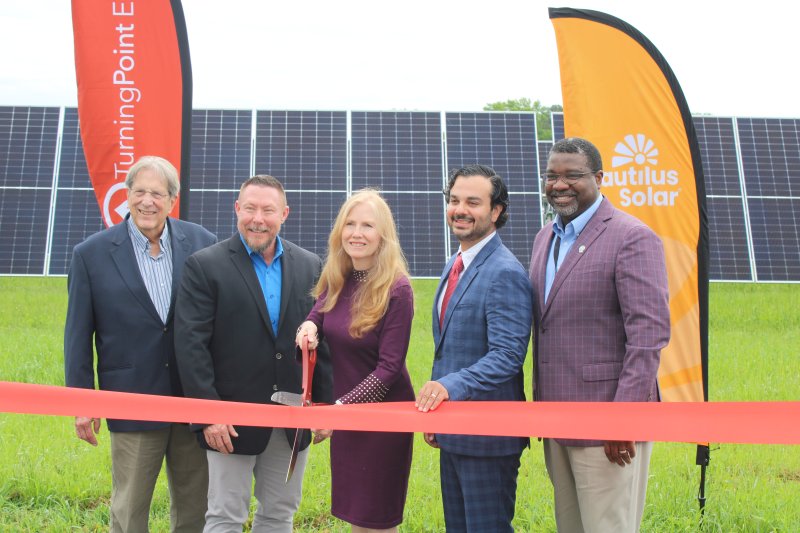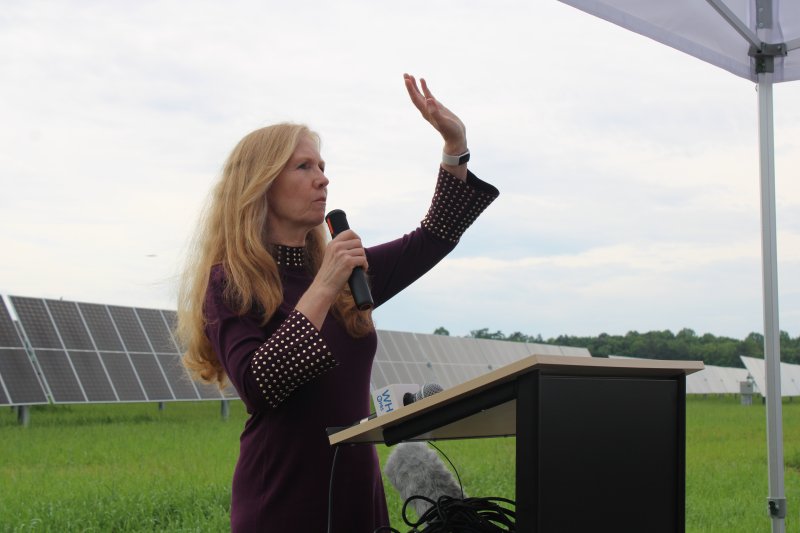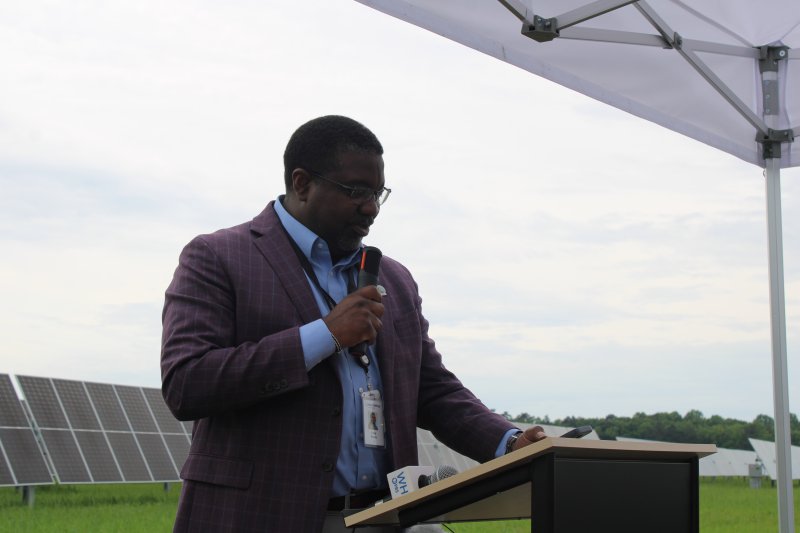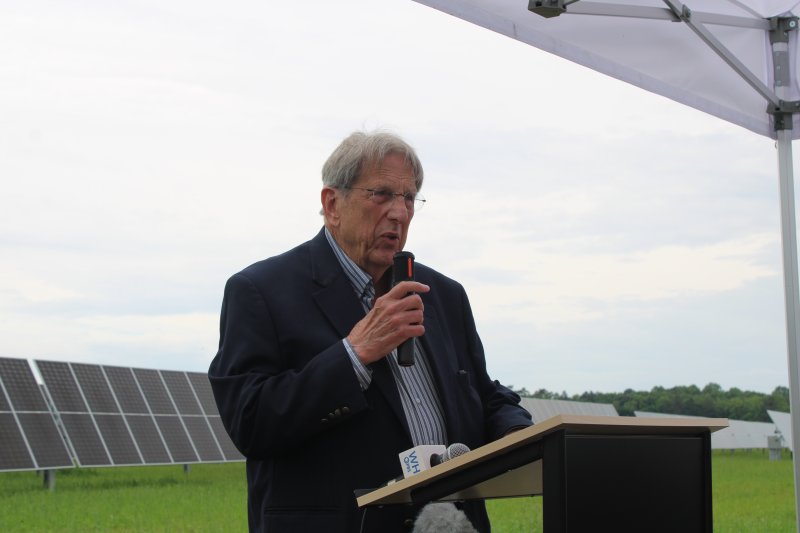Officials hold ribbon cutting for Georgetown solar farm

Turning Point Energy and Nautilus Solar Energy celebrated their first solar farm in Delaware with a ribbon-cutting event June 10 in Georgetown.
The Georgetown solar farm is the first of several projects for both Nautilus and Turning Point Energy in the state. According to the companies, the 35-acre site will generate an estimated 8 million kilowatt-hours annually, equivalent to preventing 4,900 metric tons of greenhouse gas emissions and taking more than 1,000 cars off the road. As part of Delaware’s Community Solar Program, the project will allocate at least 15% of its total capacity to low-income customers. The facility is also buffered by a 25-foot-wide landscape barrier to maintain the location’s visual appeal.
Joining representatives from the companies at the ceremony were elected officials and community members whom the project will serve.
Eric LaMora, vice president of community solar at Nautilus, thanked special guests from the governor’s office, Georgetown Boys & Girls Club and others. He emphasized the importance of the Turning Point and Nautilus Solar partnership.
Sen. Stephanie Hansen, D-Middletown, who serves as chair of the Senate Environment and Energy Committee, underscored the reasons for and benefits of local renewable energy sources in southern Delaware. Hansen said she’s reviewed the lengthy and comprehensive process that developing solar energy legislation has required in Delaware. She thanked many people for their contributions to the development of a renewable energy framework in the state.
Larry Alston of Pepco Holdings and Delmarva Power reinforced the scale and assured positive effects of the project. He called the partnership and solar farm “efficient, effective and affordable for all Delawareans.”
Judson Malone, executive director of the Springboard Collaborative, an organization dedicated to constructing affordable housing for those in need, highlighted the project’s step forward. He said the project is not just for clean energy, but also for community progress. Malone said the project is critical for generating savings for organizations like Springboard Collaborative and low-income families across the county.

























































